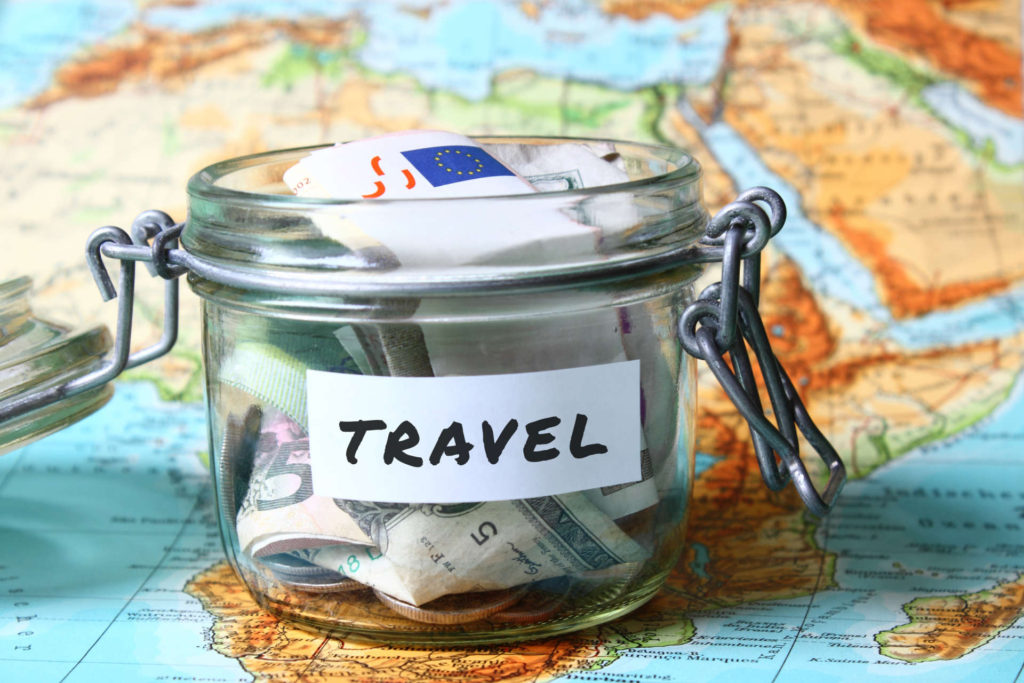When you’re thinking about jetting off to far flung places, one of the things you start with is looking at your budget. Where can you afford to go? How long can you afford? Will you be able to spend a few weeks or a few months, or maybe even a few years away? What are you looking to get out of your trip – is it lots of partying, studying, yoga retreats and the like? These are things that will determine whether the budget you have is going to be able to last you for the length of time or not. Take a look at some of the following tips and ideas for making that budget stretch.
Legalities and Other
So you have your ticket and you’re heading off in the next few months. Some things to keep in mind are the absolute necessities that will make your trip worry free, such as travel insurance. Now, you don’t need to shell out for the best insurance available. Simple medical, cancellation and med-evac insurance is necessary in the event of medical problems and injuries.
If you’re going somewhere prone to tropical or waterborne illness especially as you never know if one meal or one bug bite will make you sick to the level of hospitalisation, which can be an extremely costly venture if you aren’t prepared. Another thing to consider is the cost of visas for the country or countries you’re going to. This can run into a lot of money, depending where you’re headed – visas can range from free for 30 days all the way up to $200 for single entry for 2 weeks in some extreme cases, so make sure you factor this in.
Activities
So – you want to get out and do a couple of cool activities like trekking, hiking, windsurfing, or any number of other activities that are dependent on location. The number one thing to be wary of is vendors who sell “seemingly amazing” packages on the beach or the roadside. Some of these packages can be an “amazing” price, but offers very little in the terms of activities without saying so. Check with your guesthouse or hotel as they will often offer deals to people staying with them, which can save a lot of money.
Additionally, if you have a group many activity providers offer great “group rates”, including on taxis and boats, so it might be worth finding other foreigners who are planning on doing the same activities and buddying up to save money. Most of the time you will have to pay for the whole taxi or boat for $10USD (as an example), but if you have four of you, it’s better to spend $2-3 each instead and split the cost!
Accommodations
Guesthouses and hostels are probably the best way to go here, but keep your options open. Hotels are often much more expensive – especially if you’re staying somewhere like the Ritz, Holiday Inns, Rivieras, and resorts are pricier as well, but you can sometimes score a really great deal in the off season (like Monsoon in Asia), purely by asking and engaging in a bit of negotiation.
Air BnB’s also provide a great alternative, with some rooms being as little as $5 a night in some cities around the world for a private room in a local person’s home – and the added benefit of making a local friend who might show you the sights! Air BnB’s are perfect if you’re travelling in a group as many offer entire homes with some great perks (like pools!) for less each per night than the cost of a hostel – so it’s definitely worth checking out Air BnB’s in your destination cities.
When in doubt though, and if you’re trying to do travelling on a massive shoestring – Couchsurfing is the perfect way to keep prices next to nothing. The downside is that sometimes hosts can be a bit flaky, changing plans at the last minute, and sometimes all you’re guaranteed is literally a couch in someone’s living room. But you will get to meet locals, learn a few recipes or share some of your own (hosts like people who are willing to lend a hand in the kitchen or in other ways!), and you will save yourself some cash each night.
Food
Food is a big one – and one that I’ve struggled to keep the costs down on while I’ve been abroad. It can be all too tempting to just “pop into a bar for a quick drink” and you end up staying until 2am and shelling out $15 for a meal that you didn’t plan on spending. Check out back alleys, local places and stay away from hotels and “main drags” like famous town squares or famous streets. You will be surprised at the calibre of side street restaurants and coffee shops – many of which will offer more local-based, kitschy and unique dining experiences than those on the main strips. Also street food vendors will help keep the costs down and often allow you to try local dishes that might not be available in many restaurants – for a fraction of the cost!
Volunteering Exchanges
One final amazing tip you NEED to check out is HelpXing. For a small fee (around $20USD for two years membership), you gain access to an incredible plethora of listings around the world in nearly every single country from people and sometimes businesses that are looking to hire volunteers for any number of thing in exchange for rooms and sometimes food.
I personally have tried out this amazing opportunity in Ireland to keep costs low and I did a bunch of DIY for an older lady in exchange for a huge private room and all my meals (had to cook them myself, but she provided the ingredients!). The only downside to HelpXing is that some of the people looking for help might expect you to work five day weeks for eight hour days, which can be a bit much to just save a couple dollars at a hostel, but if you find the right opportunities for you and your plans, it can be a great way to keep costs way, way down. Some famous listings include helping on organic farms, helping with horses, teaching English in very remote areas, helping with various community projects and helping build house extensions and the like.
So there you have a number of amazing tips and tricks for keeping the costs down and travelling the world like a pro. So get out there and see everything you can while you can – there’s literally no excuse when you can travel for next to nothing!



